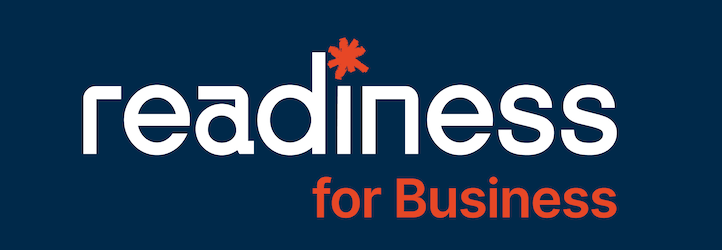By Christi Malthouse
While the end of year sales can be a great time to pick up a bargain, it can quickly lead to a great deal of stress if your finances aren’t in order, and that bargain becomes a burden.
Financial wellbeing, and conversely financial stress, are big issues and there’s no better time to talk about them than now.
So, what is financial wellbeing?
According to a study conducted by the University of New South Wales for Financial Literacy Australia, financial wellness has three interlinked dimensions:
- An adequate income to meet basic needs, pay off debts, and cover unexpected expenses with money remaining
- Acting and feeling in control of your finances
- Feeling satisfied with your financial situation, free of concern.
Financial commitments are different for everyone, so financial stress can vary from person to person. But it makes it no less important for your emotional wellbeing, because the way you view your financial situation directly impacts your mental health.
Dr. Vinita Godinho, CEO of Financial Resilience Australia (FRA) says, “worrying about money has a profound impact on people’s physical and mental health and wellbeing”.
“After a lifetime of experience and research, I established FRA as a social enterprise which focuses on empowering individuals, families and workplaces to take practical actions to improve financial health within their own sphere of control, which in turn improves overall health and wellbeing.”
Personal finances are one of the main sources of stress for Australians, as stated in the Australian Psychological Society Stress and Wellbeing Survey, which found that Debts and negative numbers against a person’s name can have a very strong impact on wellbeing.
In some cases, anxiety and depression can be linked to financial insecurity.
AMP’s 2018 Financial Wellness in the Australian Workplace report also found that 2.44 million Aussies say they feel moderately to severely financially stressed.
Signs of financial stress can include arguing with people close to you about money, sleep problems, feelings of anger or fear, mood swings, fatigue, loss of appetite, and withdrawal.
How can you improve your financial wellbeing?
The good news is that financial stress can be managed and reduced through a change in behaviour and mindset.
When faced with financial stress, Godinho encourages FRA clients to take a step back and consider the ‘big picture’ by following a three-step plan.
First, refocus to understand the ‘new normal’, and assess all risks and opportunities you now face.
Secondly, refresh your approach to managing money by reducing the risks you can address, and take advantage of any opportunities.
And thirdly, restart your financial life by putting your plans into action.
As an example, your plan could include the following practical actions, based on your circumstances, which are also highlighted by financial services provider AMP:
- Create a budget that works for you by breaking it into three categories – incoming money, mandatory bills, left over money.
- Roll all your debts into one and put them into a single loan to reduce what you pay in fees and interest.
- Save money by setting up a separate savings account. Even small amounts deposited regularly will add up quickly.
- Set aside emergency money for peace of mind. An emergency fund of between $4,000 and $5,000 is generally enough for unexpected expenses.
- Be open about talking money with your partner, and make sure you have the same financial goals to avoid arguments.
- Get a better deal from your providers, or switch to a cheaper one. Prices for product and service providers can vary greatly, potentially saving you plenty.
- Don’t be afraid to seek financial assistance. If you are struggling to make repayments, you may be able to get help from your providers by claiming financial hardship. Alternatively, call the National Debt Helpline on 1800 007 007.
“Worrying about money has a profound impact on people’s physical and mental health and wellbeing.”
Vinita Godinho, CEO, Financial Resilience Australia
Financial wellbeing in the workplace
Two in five employees experience financial stress during their careers, costing Australian businesses over $30 billion a year in lost revenue, as financially stressed workers take an extra 2.4 sick days a year, and spend almost an hour a week sorting out money problems at work.
“The case for employers to understand the opportunity to support the personal financial capability of their employees, and then improve financial health and wellbeing in their workplace, is therefore undeniable,” says Godinho from FRA.
“Workplace-led financial wellbeing is good for the business, as well as the employees. FRA specialises in enabling business leaders to take practical actions that have been proven to support the financial wellbeing of employees, based on our Financial Health-Check program, which has been informed by our ongoing global research and experience.”
A critical factor in supporting your employees through financial hardship is erasing the stigma attached to talking money, a topic that has been considered taboo in the workplace.
Instead, encourage a culture where finances and concerns can be discussed openly without judgement or prejudice. And a key element to this, is financial education.
Readiness provides several useful resources to help educate employees on how to improve their financial wellbeing.
The Readiness wellbeing platform also allows you to get to know the individual needs and concerns of your employees, which is another important component in supporting the mental health of your workers.
Money matters. And so does the health and wellbeing of your employees.
More information:
National Debt Helpline -1800 007 007 – https://ndh.org.au/
Financial Resilience Australia https://financialresilience.com.au/
moneysmart.gov.au – https://moneysmart.gov.au/
CommBank – https://www.commbank.com.au/banking/guidance/find-your-financial-wellbeing-score.html
Readiness is a complete wellbeing platform. To find out how Readiness can help your business support the financial, physical and mental wellbeing of your employees, visit: readiness.org.au

